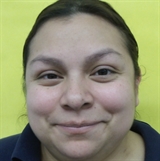For many years, our nation’s public libraries have been providing more than books. After-school homework help, computer access for students and job searchers, preschool and adult literacy programming, shelter for those in need, and more have been provided in libraries and by their professional staff for decades.
In the current state of municipal budget shortfalls, many cities and towns have decided to cut library branches and decrease library hours to cut costs. Like the removal of any public service, the loss of library access has an impact on many people. It is a tear in the social safety net.
We know that school kids, job seekers, shelter-seekers, and learners of all ages were impacted when the City of Chicago implemented $3M in budget cuts in January of this year, cutting 172 low-wage library jobs and closing 75 branch libraries on Mondays. The community lost access to critical services and 172 people lost their jobs as clerks and pages in the Chicago library system.

Rufus was one of those who lost a job in the Chicago Public Libraries this winter. Now he’s asking for help with the funds necessary to purchase the right-sized car seat for his infant son and to buy his son books and toys, as he would have been able to do had he not lost his job.
I am not arguing here for or against curtailing library hours or jobs. Cuts had to be made in the city’s budget. If those funds had instead been pulled out of our public transit system or out of violence-prevention programs, we would see similar tears in the fabric of support and resources for those living close to the economic edge.
I wonder whether schoolteachers are now finding that their students cannot be expected to complete homework on Monday evenings because they can’t access after-school homework help or get onto a computer to complete their assignments. I wonder whether public transit stations, malls, fast food restaurants, and the like are feeling the strain of the volume of people who might otherwise have been reading, taking shelter in or attending programs at public libraries and who are now at loose ends on Mondays.
We can see in Rufus’ situation that the low-wage positions of clerk and page in a library system were not sufficient to provide these earners with any sort of a financial cushion. Less than three months into unemployment, Rufus tells us of near-homelessness and an inability to purchase basic supplies for his son.
This is where you see clearly the multi-generational effect of the fragility of our safety net. When Rufus lost his job, his son’s potential future earnings dropped along with his father’s. While we hope that Rufus and his son prove to be the exception to this rule, research and history tell us that children whose parents are low-income earners are exponentially more likely to be fixed in the same socio-economic status as their parents.
Rufus was on his way to a career path and stability in earnings. We hope he’ll get right back on track, but in today’s job market, that is going to be a challenge. In fact, we know from research cited in the Chicago Tribune last week that within Rufus’ age group, his chances of being rehired within 18 months of losing his job are approximately 77% (down from 89% before the recession) and that he’s likely to be hired at a wage 11% lower than the wage of the job he lost. This has implications for Rufus and for his son’s safety and development.
When we step up and help Rufus’s son during his dad’s jobless patch, or when we help Brenda get a computer so that she can complete her training in Radiology and her son can apply to colleges, we’re alleviating the human impact of cuts and shortfalls and addressing two generations’ needs. We’re fixing the holes when the social safety net has stretched to the breaking point. We’re doing it because we can see and hear Rufus and Brenda and we can be there to tighten the weave under them at a critical moment.
- megan kashner, founder & ceo




